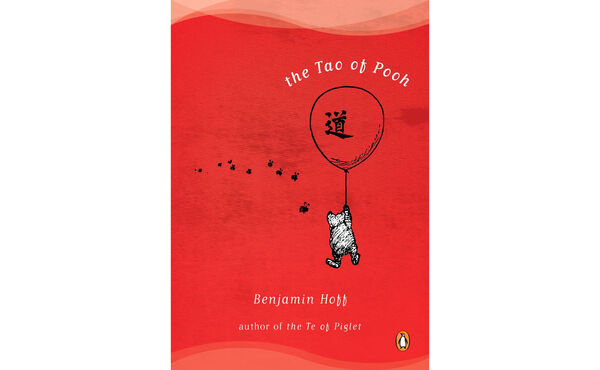The American author Benjamin Hoff wrote his bestselling book The Tao of Pooh in the early 1980s. Three decades on, the book continues to teach timeless Taoist life lessons. Taoism is an ancient Chinese philosophy of how to live in harmony with the universe. Hoff shows that practitioners are not necessarily wise men and women from the Far East. A true master of Tao, Winnie the Pooh ended up on bedside tables around the world.

The Tao of Pooh was published in 1982, spending an impressive 49 weeks on the New York Times’ bestseller list. And with good reason, because the book teaches some invaluable life lessons. The book’s central character is Winnie the Pooh, who personifies the Taoist principle of non-action, or simply being. Other characters—such as Owl, Piglet, Tigger and Eeyore—reflect the human tendency to over-complicate things in life.
Taoism
Taoism is a Chinese philosophical tradition that teaches how to live life wisely. The word Tao translates as “way” or “path”. The ancient book Tao Te Ching—The Way and its Power—was compiled around the third century BCE and consists of 81 brief texts. Legend has it that a wise man by the name of Laozi wrote the Tao Te Ching, but it’s more likely that the book is a collection of texts written by various authors.
So what exactly does Taoism teach us? For Taoists, the one constant in life is change. Balance is never achieved for long, and nothing can exist without its opposite. The central teaching of Taoism is that we should always seek the path of least resistance—like water does—and just go with the flow.
The Taoist principle of accepting the flow of life is beautifully captured by the following lines from the Tao of Pooh:
“To know the way,
we go the way,
we do the way.
The way we do,
the things we do,
it’s all there in front of you.
But if you try too hard to see it,
you'll only become confused.
I am me and you are you.
As you can see;
but when you do
the things that you can do,
you will find the way.
The way will follow you.”
Life lessons from the Tao of Pooh
The Tao of Pooh is an absolute must-read for anyone seeking to live a richer and happier life, but we’ll give you a short sum-up of the life lessons it teaches. Most importantly, the book teaches that meditation and self-reflection can help you become your most true self, which paves the way for peace, happiness and fulfillment.
Here are some other important lessons taught through Pooh’s tales.
1. The Pooh way
Pooh has an effortless way of going about life. Rather than trying to control or change things, he just lets life happen. Taoists call this way of life ‘wu wei’. Wu wei is about letting go and letting be, but it’s definitely not about being lazy. As a Taoist saying goes: “A journey of a thousand miles begins with a single step.”
2. Slow down
We often tend to rush through life, feverishly driven by our fear of wasting time. But according to Pooh, time cannot be wasted. It can only be spent. So slow down and stop hurrying - simply be.
3. Embrace differences
Pooh teaches us that we are all unique. Don’t try to be someone else. Hoff writes: "A fly can't bird, but a bird can fly. Very simple. It's obvious, isn't it? And yet, you'd be surprised how many people violate this simple principle every day of their lives and try to fit square pegs into round holes, ignoring the clear reality that Things Are As They Are.”
4. The uncarved block
The Chinese word ‘pu’, which translates as ‘uncarved block’, refers to the natural state of things - to who we are at our core. Pooh embodies the principle of the uncarved block, as he always exists in his natural state and sees the original simplicity in the everything and everyone around him.
5. Snowball effect
If you keep thinking about something, those thoughts will “snowball”. They become bigger and bigger. So to build a positive life and increase your happiness, think positive thoughts. Flood your mind with positivity by thinking of the things you appreciate in your life, and let the snowball effect do the rest.
6. Don’t fear emptiness
Many people fear emptiness, frantically filling their lives with stuff and non-stop busyness. But Pooh teaches us that emptiness can clean out our messy minds and recharge the batteries of spiritual energy.
Want more life lessons? Buddhism, which developed parallel to Taoism, teaches the art of being and helps you find inner peace.


